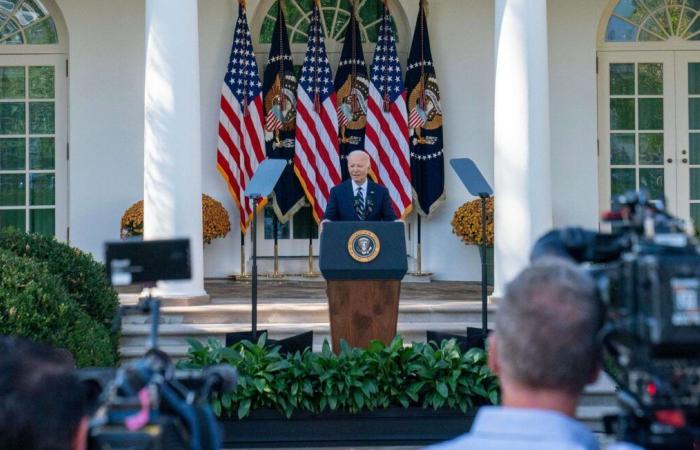With his second term, Donald Trump should have a much broader scope of action than during his first presidency, during which certain safeguards limited his sometimes radical decision-making. This time, the political context has changed: the Senate will be Republican and things are going well for the second chamber of Congress too. Elements which augur a more radical mandate, without solid counter-powers.
Outgoing (but still in office) President Joe Biden therefore has a very short period to consolidate some of his achievements and his political legacy. A little less than three months separate him from the transfer of power, which he wants to be “gentle” and peaceful. The countdown is on to “Trump-proof” the White House.
Political and administrative purge against “enemies within”
For his return to the White House, Donald Trump plans to surround himself with followers by replacing a large part of the federal administration with supporters. The 2025 Project, supported by the conservative group Heritage Foundationaims to “dismantle the administrative state”. In addition, Trump's Agenda 47 announces radical measures to “clean up the deep state” on his first day in office, including an executive order aimed at restoring to the president the authority to fire officials he would be deemed “disloyal”.
The main measure, known as Schedule Fwould reorganize the bureaucracy by making up to 50,000 (compared to 4,000 currently) federal positions accessible to political appointments. Civil servant unions have expressed their fears, indicating that Schedule F could affect many more positions than the number put forward by Trump's supporters, who have already put together a list of 20,000 candidates ready to occupy key positions in the administration. The objective? Ensure unfailing loyalty. A strategy that could compromise administrative independence and put under political control institutions supposed to limit presidential influence.
Consolidate your political legacy
To ensure lasting civil rights protections, Biden plans to strengthen federal protections in sensitive areas like minority rights, abortion rights and LGBT rights. According to journalist Ian Millhiser of Vox“Biden could use executive orders to erect legal barriers that are difficult to overturn,” hoping that some protections remain in place despite Trump taking power.
On the environmental and health front, Biden could also appoint loyal senior officials to federal agencies like the EPA (Environmental Protection Agency) or the Department of Health. The idea is to make it more difficult to dismantle programs crucial to public health and environmental protection.
Our file on the American presidential election
“Lock international alliances”
Internationally, Biden could solidify alliances to anchor the United States' position on the world stage. Journalist Susan Glasser explains that by strengthening partnerships with key allies, Biden could “lock in alliances that would be costly to ignore, even for a president like Trump.”
Before the end of his term, Joe Biden is also expected to strengthen resistance against the Trump administration by mobilizing Democratic governors and legislatures. These states could create a coalition to pass local laws that would protect civil or environmental rights, even before federal measures are implemented. According to political scientist Hans Noel who spoke on France Infothis could “make it possible to block certain federal policies, particularly in states like California or New York”.
By clicking on“I accept”you accept the deposit of cookies by external services and will thus have access to the content of our partners.
More information on the Cookie management policy page
I accept
A bulwark remains: the judicial system
Although Trump has appointed many conservative judges, the judiciary remains a bulwark against abuse of power. Biden could work with independent lawyers and judges to maintain the balance of power and prevent the invalidation of essential protections.
But the legal context around Trump is evolving in a complex way. The judge overseeing the 2020 election interference case has canceled all remaining procedural deadlines as special prosecutor Jack Smith's team considers how to handle the charges as the trial approaches. presidential inauguration. According to the Justice Department, a sitting president cannot be sued, a rule that could protect Trump while he is in office. As explained by a source cited by Associated PressSmith's team needs time to “evaluate this unprecedented circumstance and determine what action to take.”






